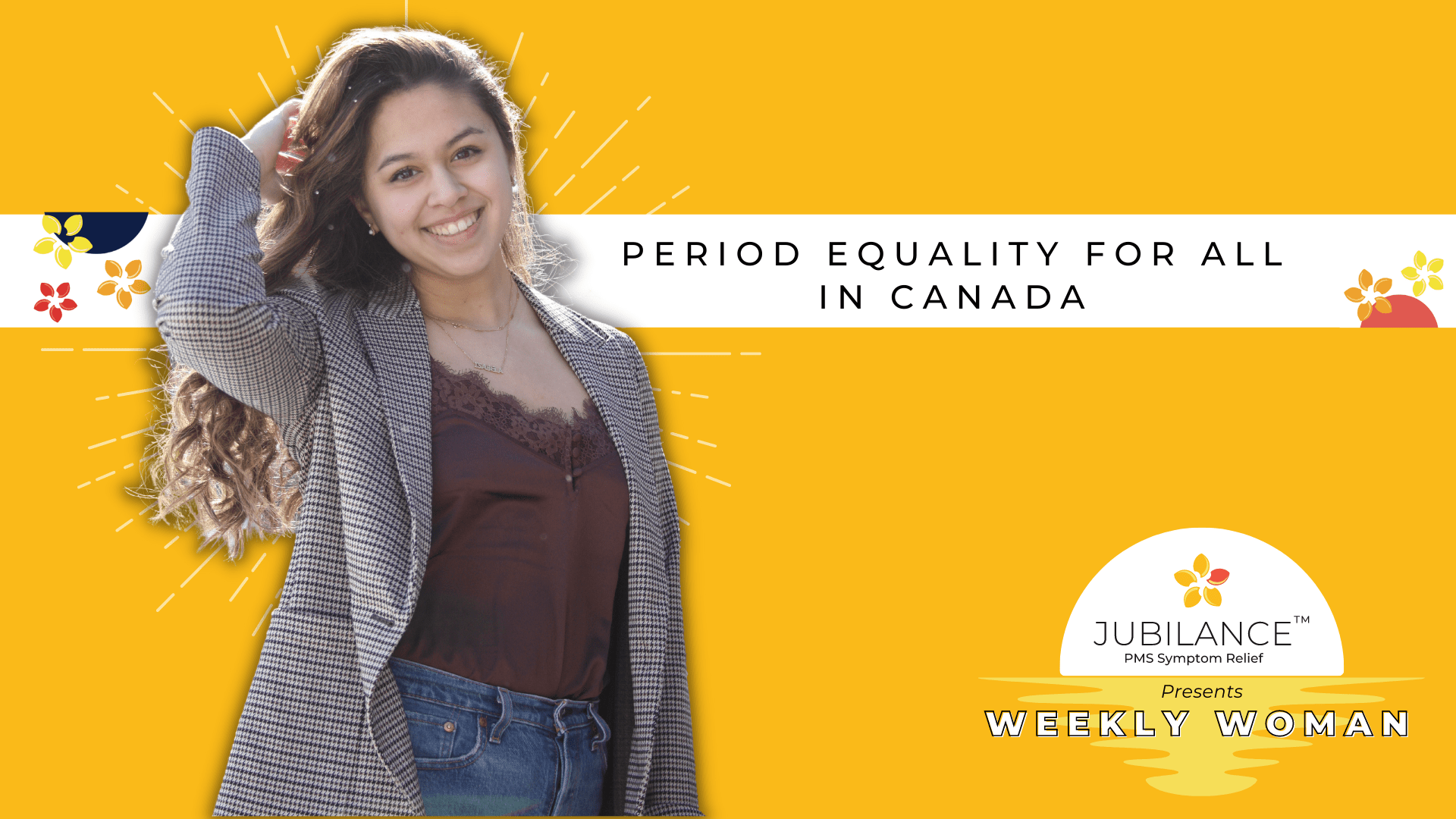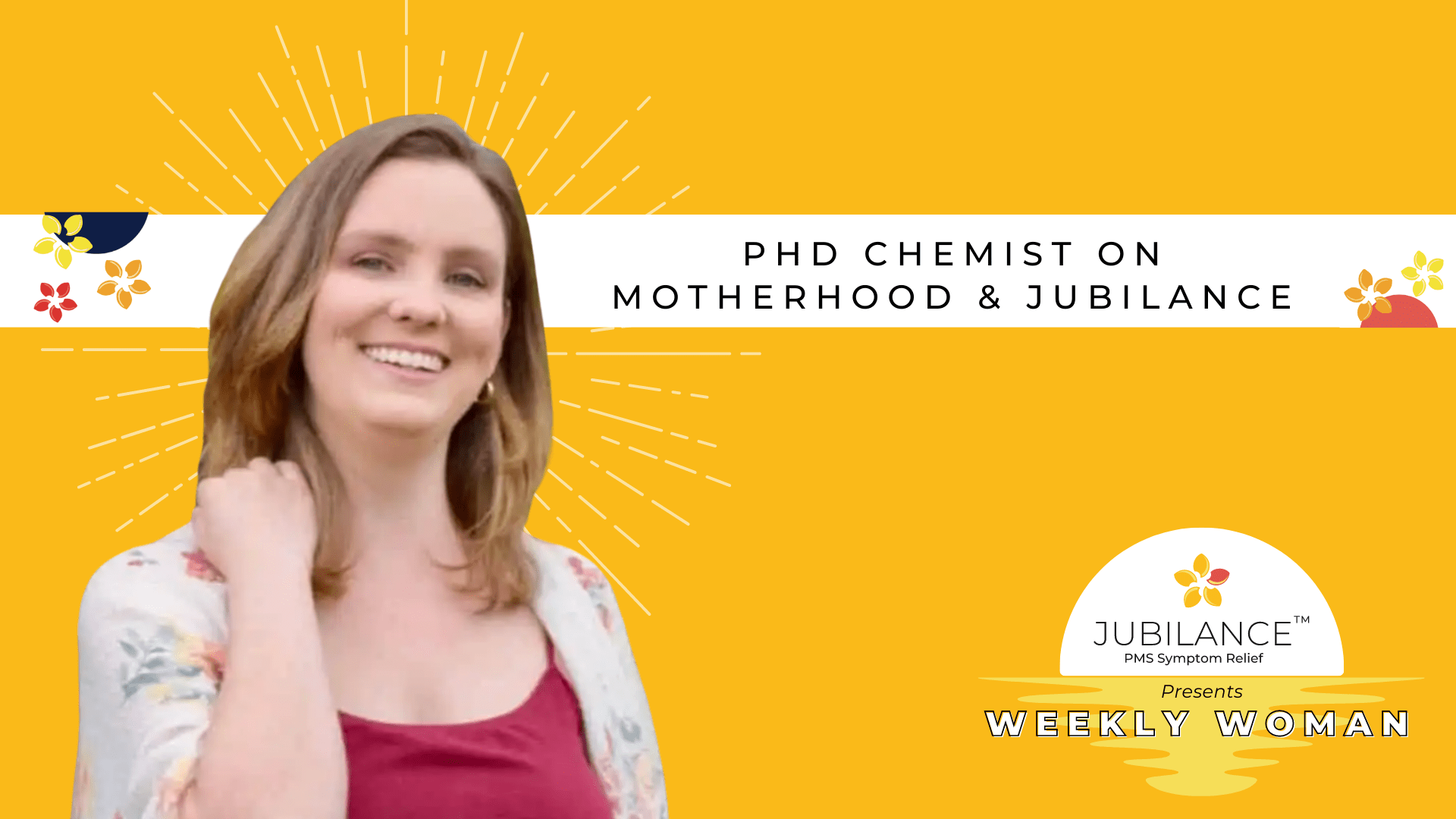Isabela Rittinger, founded Bleed the North, a youth led nonprofit organization committed to ending period poverty and stigma by providing menstrual products to people in need across Ontario and greater Canada.
Watch her Interview Now:
Listen to her Interview Now:
Read her Interview Now:
Alice: Perfect. Well, welcome, Isabela. We are so excited to have you on the podcast. Isabela has created Bleed the North, which was formerly, Period Ontario, and we are so excited to have you.
Isabela: Thank you so much. I’m so happy to be here and I can’t wait to chat more about myself and Bleed The North today.
Alice: Amazing. So I just have some like fun questions to get started. So, where are you living now, sorry, are you in Toronto?
Isabela: I’m currently living in Kingston, Ontario, which is about three hours away from Toronto. I am in my second year of studies at Queen’s University. So I’m kind of doing part-time between being Kingston and then also spending some time at home near Toronto.
Alice: Oh, that’s so nice. What are you studying?
Isabela: I am a Political Studies major and a film and Media minor.
Alice: Oh, my God, that’s amazing to-
Isabela: I loved it.
Alice: -very cool and very different things. I guess you can vary them together.
Isabela: That’s my goal. We’ll see, I didn’t necessarily anticipate being a Film minor, but then I just love movies and so I figured I might as well be getting graded for it.
Alice: Yeah, that’s so cool. My two sisters both studied film and just one of them is in that industry now, but they love it.
Isabela: Awesome. That’s a lot of fun.
Alice: That’s so cool. How did you start to get into Period the group?
Isabela: Yeah, so it was something that I kind of had my eye on ever since I learned about Period Poverty and Period Stigma. These were two terms that I didn’t necessarily relate to my experience being in Canada. I always thought that was something that we didn’t necessarily need to face because Canada has this mythology of being progressive. Because we got rid of the tampon tax in 2015 and just a lot of other things which is absolutely not the case.
I think that a lot of people, a lot of people think that Period poverty and stigma are not necessarily issues in Canada as much as they are even in the states as well as other countries. But one in three women under the age of 25, struggle to afford Period products in Canada. It was that statistic that really got to me. I realized it didn’t know that. And this was March of… I realized that once I got in sent home from school because of covid, I would have a bit of extra time on my hands to put towards something that I could change.
Alice: So, how did you first find that statistic? Where did you see that? Inspire you to do something about it? 1:25 that’s insane.
Isabela: Yeah. It’s a plan Canada statistic. It was after I watch the documentary Period End of Sentence that I wanted to learn more about what Period Poverty was. I just did some research on my own and found all of these statistics and I was like, “Oh, my god.”
Alice: Wow, and for our listeners, can you explain a little bit about what Period Poverty is?
Isabela: Yeah, absolutely. So, period poverty basically refers to a lack of access to, like, attaining period products specifically preferred period products of, you know, there’s a variety pads tampons as well as menstrual cups and period underwear sort of thing, and also access to information about how to have a safe and healthy period.
Alice: Mm-hmm. Thank you. And so you started Bleed the North. Can you talk a little bit about starting it and what exactly is Bleed the North?
Isabela: Yeah, absolutely. So, first of all, just some context. Bleed the North is a non-profit and we’re committed to ending period poverty and stigma in Ontario in particular. We’re made up of roughly 70 youth members. So, all of us are high school and University students who have come together over the past two years to hopefully tackle these issues of period poverty and stigma. We do that through advocating for menstrual legislation and change, educating people about period poverty stigma, and also actually donating period products to folks who need them. So, we have our service team who has donated copious amounts of over 60,000 period product since our inception to community members and people in need across the province. That’s a little bit about Bleed the North.
Like I said, I started it last March. So we’re coming up to two years, which is really [crosstalk] and that’s odd for me to say because I genuinely expected Bleed the North to be a two-week project while I was sent home from school because of covid. And then it kind of really amassed into a huge audience of followers. People who, at the time, thinking back to when toilet paper was being stockpiled and nobody knew what was going on and everybody was at home. I think folks just wanted something to get involved with so that they could feel like they were making a change and feel like they were doing something to contribute to whatever this pandemic was. And so, we had a lot of folks at the very onset wanting to get involved. I think that Bleed the North was able to help provide people an opportunity to help their community.
Alice: Wow, that’s amazing. I can’t believe you have a 70 volunteers and you said over 60,000 period products that you’ve distributed. That’s incredible in two years.
Isabela: Thank you. Thank you. Yeah. Actually, one really exciting thing that we just did literally wrapped it up last night is we partnered with a business partner in Estonia and Ukraine to send period products to refugees in the Ukraine who are currently obviously undergoing tremendous strife.
Yeah, a lot of folks haven’t necessarily thought about the impact of period poverty in the context of the Ukraine crisis that’s going on right now. We wanted to support that and so we hosted a fundraiser over the last week and ended up sending almost 9,000 period products which have been matched by a business partner. So, a total of 17,820 period products are being sent to Ukraine to support menstruators on the ground. So that’s been a super exciting thing that we’ve just finished up.
Alice: Oh my gosh, that’s amazing. Because I know that when people think about donations and donating, its money, it’s food, it’s shelter, it’s blankets and stuff, but people don’t generally think about women’s bodies and menstruation. So that’s so admirable and amazing that you guys can bring those to the Ukraine and bring those to your community as well for people that need it.
Isabela: Yeah. I think the thing with period activism and with the work that Bleed the North does is it’s already very stigmatized. It’s already not something that folks want to talk about. And people who are experiencing period poverty are also experiencing helplessness and other factors which are contributing to their positionality and their experience. There’s so many factors that menstruation is often missed and because it’s shrouded in such stigma it’s so much more difficult to combat. And so I think that’s why the work that other menstrual justice orgs and Bleed the North is doing is so important.
Alice: That’s what we’re trying to do, too, is just to create a platform for people to talk about menstruation because as you said, it has such a stigma, it has a taboo behind it. But if we’re able to talk about it and get people to hear about what other people are doing, what even is period poverty because a lot of people don’t know.
Isabela: Sure.
Alice: Then we can begin to make a difference about it.
Isabela: Yeah, and that’s just as important. The thing is, people often ask about what it takes to be a period act advocate or what kind of advice I would give. And honestly, period activism is not just being involved with organizations like Bleed the North and doing what I do. It’s talking about your period to your younger brother and offering a tampon to someone who needs it in the school bathroom, right? That is period activism and it starts with conversations like these.
Alice: Yeah. I remember in my graduate school class I brought in a tampon for a prop for some theater thing because I’m a theater director at points.
Isabela: That’s awesome.
Alice: Yeah. But I brought it in and this male Professor just looked at it and was like, what is this thing? And I opened it up and like, took it apart and he had never seen that before and he was so intrigued and interested. But I think what you’re saying about just telling your little brother, telling your male friends or telling anyone on the street about what this is and how a woman’s body works because we’re learning about the opposite sex so they should too. Yeah.
Isabela: Yeah. Absolutely. I can recall specific conversations with my dad in terms of, he has just mentioned how much he’s learned about all of this since I started. I remember when I got my period, I did not want my dad to know. I didn’t necessarily want that to be a conversation. He has said to me that through my experience with Bleed the North, he’s learned so much more about what menstruation is and how it impacts menstruators. I kind of tried to explain even a lot of the nuanced things and now he’s definitely very woke which is amazing.
But I remember him telling me this story about my grandpa when he was a teacher that there was a tampon on the ground and they evacuated the classroom because he thought it was like a bomb, like he didn’t know what it was. One of the other fellow teacher of his. Luckily my grandpa knew better than that I think at the time but a fellow teacher of his saw that and evacuated the class because he thought that it was, you know, he didn’t necessarily– this was very strange object to him. I just think that’s a testament to the fact that there’s so little education about this. Obviously, this was back then but I don’t think it’s so far as to say that a lot of people don’t know the intricacies of period products and of periods in general unless you experience it directly, let alone the issues of period poverty and period stigma.
Alice: Yeah, that’s so true. So I work for a company called Jubilance for PMS and we have a period product that is for the emotional side.
So, like stress, anxiety, irritability and gloominess. But that’s something that no one wants to talk about or even acknowledge like, “Oh, I’m PMS-ing.” But there’s a way that we can create space to even talk about what we’re going on outside of just bleeding.
Isabela: I love that. I really, really love that. I think that that’s definitely something that is rarely talked about, and also it’s so trivialized. Everything in terms of emotions and lived experiences is almost never really given very much value, and I think that it holds so much merit and is an absolute valid experience as a part of menstruation is what you’re feeling mentally and emotionally.
Alice: I know, I’m always like where is my chocolate?
Isabela: Yeah, exactly.
Alice: And then I realized the next day, I’m like, “Oh this is why I was crying non-stop.”
Isabela: Yes, exactly. Exactly. It impacts real events and experiences. It’s definitely something that needs to be considered and isn’t something that can just be pushed off as I’m PMS-sing or “Oh, it’s that time of the month.” You know what I mean?
Alice: Yeah. Yeah, definitely. Which is why it’s so good to get to talk about it.
Isabela: Yes, for sure.
Alice: Yeah. Can you talk about what is something unexpected that you’ve learned from starting Bleed the North, from working with different consumers who are getting these products? What has been the most surprising take away?
Isabela: You know what, as much as we’ve talked about how there’s such a definite gap in terms of learning and how a lot of people still have a long way to go. I was surprised at the amount of support that I got from people from all walks of life. I think that that is something that’s also very unique with the issue of menstrual activism, is that as soon as people learn about it they’re like, “Oh yeah, obviously, like I can’t believe that that is even a thing.” I have been involved in a number of different political groups and so I you talk to a lot of folks from various political backgrounds that don’t necessarily align with mine. I have been amazed at just the non-partisanship of the issue that people, no matter what they believe, have been very supportive of Bleed the North and of ending period poverty and period stigma. And that’s something that I didn’t necessarily anticipate. It’s been very easy having conversations with older folks, religious and non-religious folks, people of different gender identities and everything, have for the most part, once they’ve learned about what Bleed the North does, been incredibly supportive and willing to like help.
Alice: Wow. That’s amazing, Isabella, and so fascinating. I wonder if that would be the same case in America. I’m not sure but I’d like to find out.
Isabela: Interesting. I would love to find out and that’s why people listening to this and learning about period poverty and period stigma to kind of get out there and talk more and see if people are as willing to learn as they are up north.
Alice: Yeah, up north. So what is next for Bleed the North?
Isabela: You know what, I would first of all love to see the organization go national. We have been working on making sure that, obviously we want to make sure before we expend that folks that we originally aimed to reach, we’re able to continue servicing them. But obviously, period poverty and periods stigma exists everywhere and so that’s something that we want to focus on. Obviously, those very rural communities in Northern Canada and in other locations, other provinces, and so that’s something that we want to kind of be able to tackle with respect to those communities, especially indigenous folks. And so, that’s something that we’re kind of working on and really want to make sure that we get right. But we also host a number of different events and things like, for example, we have our Menstrual Health Day event coming up in May. So there’s always things going on and I’m super excited to see what the team gets up to this year because I can just imagine this is kind of now our coming out to our third year, full year of service. And so, I can’t wait to see what we got up to.
Alice: Amazing. Yes, you guys have so much going on which is awesome. And I want to see this go national too. So I’ll keep following along and see what happens.
Isabela: Thank you. I appreciate that. Yeah, the people are busy. I truly say, like, without every single volunteer, we would not be nearly where we are today. They are also incredibly inspiring and so motivational that I don’t see how anybody couldn’t look at any one of them and be amazed and want to get involved in some way.
Alice: That’s wonderful. It takes a village, right?
Isabela: Absolutely, it really does. It really, really does.
Alice: Amazing. Isabella, something we always ask on this podcast is what is your definition of womanhood?
Isabela: Hmm, interesting. I think that very often as a young female founder, I have found myself in situations where my youth as well as my femininity have been seen as negative traits or have kind of been used against me. I can think of, in particular, there’s one situation where I was trying to open a bank account for the organization very early in the inception of Bleed the North. All the questions were posed at my father and we’re just dripping in misogyny and we’re just very trivializing and very offensive. That experience I remember leaving it feeling very worn down, just in terms of kind of that was one of many experiences where as a young female founder, I realized that I was going to not necessarily be given the same opportunities and same respect as I would if I was older or if I wasn’t necessarily a woman. At first it was very difficult for me to wrap my head around, but I think since then I realized that it is those things, it is me being young and me being a woman that has allowed me to get to where I am today and has kind of allow Bleed the North to become what it is.
Bleed the North is definitely predominantly filled with young women. There’s also folks of other gender identities who have been doing so much for the menstrual movement and who I want to acknowledge. Like not all women are menstruators and not all menstruators are women. To a certain extent, we really try to broaden the definition of menstruation and womanhood at Bleed the North. But I can say that personally, it is the traits that are feminine and that have been so often used against me like in that situation. That I draw strength in times of need and in times where I’m struggling, like empathy and compassion and being able to listen and all those sort of things, that is what is most strong about me and that is what folks may see as a downfall but I see it as a strength. I hope that everybody is able to kind of take those experiences that they may have felt less than and turn it into something that is a source of power.
Alice: Oh my God, Isabella. It doesn’t get better when you’re older and still a woman anyway. I have definitely had those conversations and I am much older than you and they have continued. Those people don’t change. By drawing that strength that you’re talking about and just pushing past it and finding that inner femininity, whether you identify as a woman or a different gender identity, I think is so important like you’re saying.
Isabela: Yeah, absolutely. It’s unfortunate that it doesn’t end but I guess that’s also the kind of a source of solidarity. I find everybody who has experience those things is kind of able to take that and build a community around them.
Alice: Yeah. Unfortunately, that is true but it does bond us like you said, like a community. You can always turn to another woman and be like, “Oh my God.”
Isabela: Absolutely, and same with menstruation to a certain extent. I feel like everybody bonds over their first period story or their most embarrassing period story and there’s something beautiful in that I think.
Alice: Yeah, it is great to hear. I love asking my friends. Like tell me your first periods or your squad.
Isabela: Yeah, exactly. Exactly.
Alice: Oh, I’ve had so many. I feel like every time it’s like a really bad story.
Isabela: It’s true. It’s unfortunate, but maybe because the folks that have decent enough period stories don’t necessarily want to talk and share them.
Alice: That’s true.
Isabela: What is good is good. There’s not much to say.
Alice: Yeah. Isabella, how can people find out about Bleed the North and how can they get involved and stay hearing about your organization?
Isabela: Absolutely. So I think the main way that folks are able to follow along with Bleed the North journey and what we’re doing next and see how you can support us is through our social media, which is at Bleed the North across all channels. We post all of our updates in terms of fundraising and becoming a volunteer for us and kind of just being able to participate in the events and initiatives that we’re working on. So I would say, definitely check out our Instagram and on our Instagram, all of the other resources like our website. We also have various forms where if you’re in need of period products, and if you live in Ontario, you can reach out. Those are all linked on our Instagram.
Alice: Amazing, Isabella. Thank you so much for being on today.
Isabela: Awesome. Thank you so much. I really appreciate it. This is such a lovely conversation and I had so much fun.








